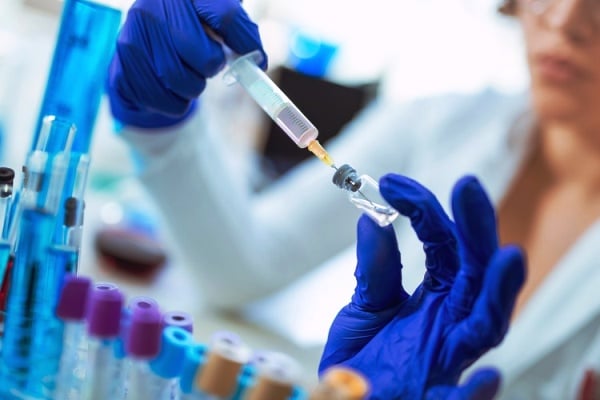
![]()
The world's biggest pharmaceutical company Johnson and Johnson is confident it has a COVID-19 vaccine. They say the firm wants to start human trials in September - which means it could be mass-produced by early next year.
The US firm eventually wants to produce a billion of them, and sell them on a non-profit basis during the crisis.
It is a significant development for a world struggling to deal with the virus, which has infected more than 800,000 people, killing almost 40,000, according to figures compiled by US university Johns Hopkins.
Johnson & Johnson's chief scientific officer Dr Paul Stoffels said trials on animals have "shown very good results showing we can produce very strong neutralising antibodies", adding: "It gives us the confidence we can follow the same path to success - we think we can do it and now it's a matter of time and hard work".
He added: "We will start by focusing on getting a billion vaccines done because this is such a problem in the world touching almost every region, every country - there will be a high need for it.
"In order to go fast, Johnson & Johnson - the people of Johnson & Johnson - are committed to do this and all together we say we're going to do this not for profit.
"That's the fastest and the best way to find all the collaborations in the world to make this happen so we commit to bring this at a not-for-profit level."
Dr Stoffels, who is also vice chairman of J&J's executive committee, said it is not yet known if the vaccine would provide immunity or simply lessen the effects of the disease - this would be something explored in trials on human volunteers.
"In September, we'll start clinical trials first to learn whether it's safe and provides immunity in humans," he said. "Then we'll study whether it prevents serious disease or whether it prevents infection.
"But it also has to be produced in very high quantities and so, in parallel, we'll test the production levels of the vaccine, as well as the efficacy and safety."
Dr Stoffels said it would usually take two years to reach the phase one stage of trials but, due to the pressing nature of this case, Johnson & Johnson had reached this point in six months.
He said "significant discussions" with regulatory authorities in the US and Europe in the past few weeks had given the company "quite good insight that we can do this now much faster (than usual) with the help of governments".
While these trials take place in the US and Europe, the company will learn "over the coming months" where efficacy studies should take place - these need to be done in regions where the rate of COVID-19 transmission is very high.